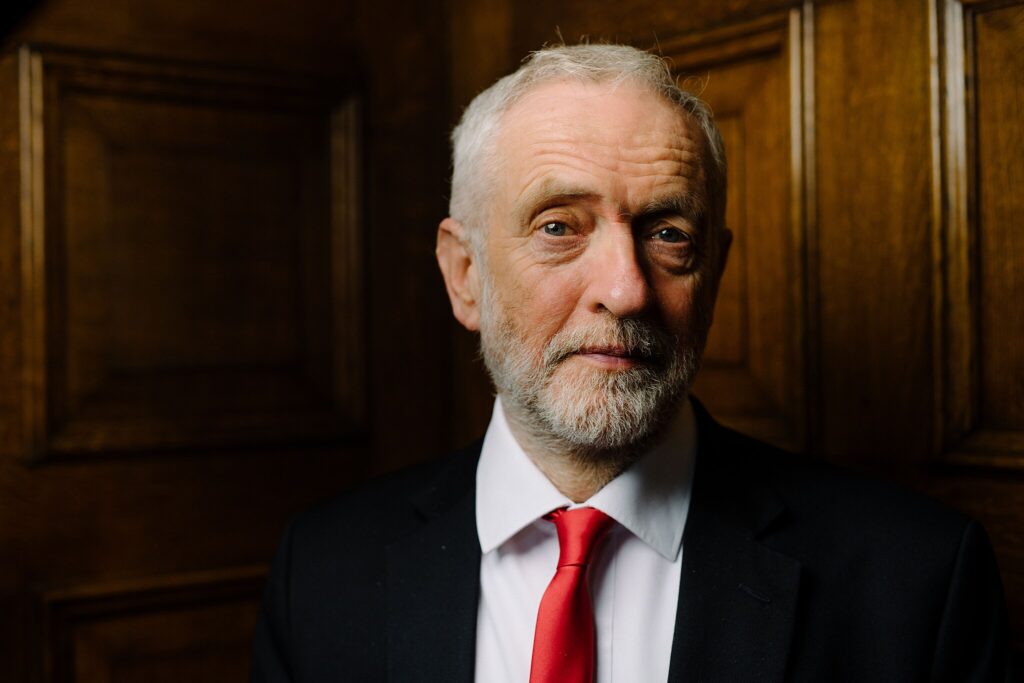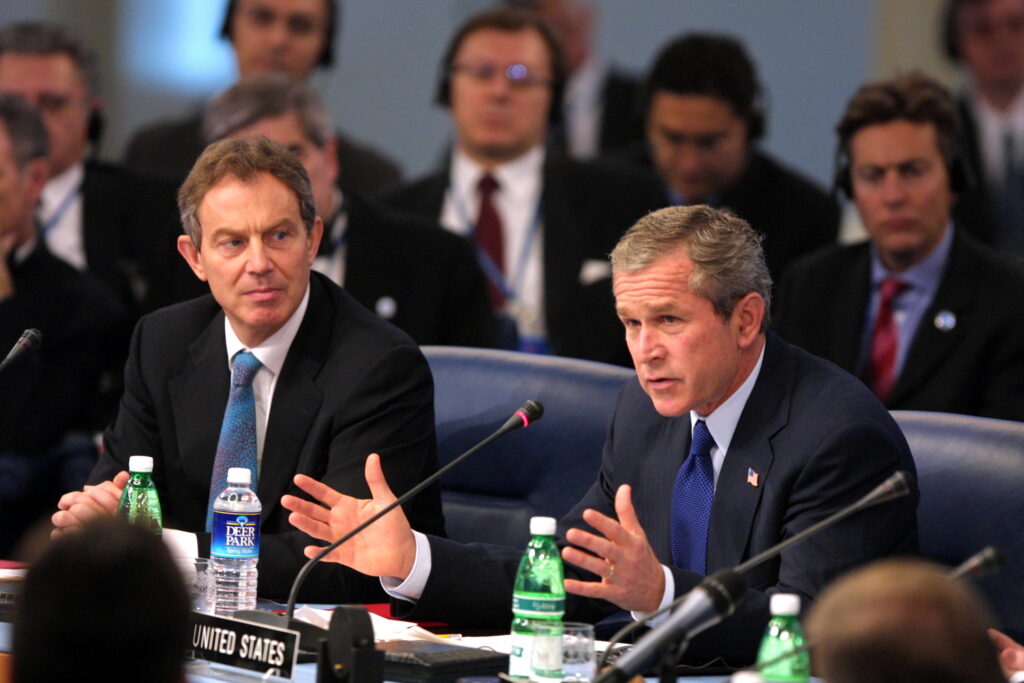
When Ken Livingstone was elected Mayor of London in 2000, 14 years after his previous power-base the Greater London Council was abolished by Margaret Thatcher, he began his acceptance speech with the words ‘…as I was saying before I was rudely interrupted’.
As I return to the task of writing about politics for The QT, eight years after my previous column in The Journal was discontinued, it would be tempting to say the same thing.
But in truth, it wasn’t that rude an interruption. It was handled with great courtesy and tact by the paper’s then editor-in-chief and, looking back, he probably did me a favour.
Because in all honesty, I think I would have struggled to make a great deal of sense of what happened to the politics of the UK in the ensuing years — not that I would have been alone among political commentators in that.
A few weeks after my final Journal column appeared, Jeremy Corbyn was elected leader of the Labour Party in an event that skewed the electoral politics of both the country and the North East region for years to come.

It has become commonplace to blame the 14 years of Conservative (mis)rule for the current state of the nation, but Labour also has to bear some of the responsibility, for twice failing — with Ed Miliband and then Corbyn — to provide viable alternative leadership and for testing to destruction the theory that it loses elections for ‘not being left-wing enough’.
This all started, of course, when the party decided to overlook the former South Shields MP David Miliband for the top job in 2010 in favour of his younger brother, even though he was patently both the most experienced candidate and the one most likely to get Labour back into power.
But if that was a mistake for which both the party and the country paid dearly, the election of Corbyn in 2015 compounded it 10 times over.
For starters, it helped enable Brexit. Corbyn was clearly a closet Eurosceptic and his lack of campaigning energy in the final weeks of the 2016 referendum campaign did huge harm to the Remain cause under the nominal leadership of his Labour colleague, Alan Johnson.
Corbyn’s unpopularity with the voters also encouraged Theresa May to call a disastrous general election in 2017, the outcome of which made the subsequent task of implementing Brexit pretty much impossible for any leader, let alone one with as little authority as May.
Finally, it enabled Boris Johnson to win a landslide victory in the 2019 election, ushering in the most chaotic and damaging period of British government in our recent history.
If Starmer has yet to ‘seal the deal’ with the electorate in the way that Blair did, likewise the Tories are in a far worse state today than they were under the palpably decent Sir John Major
Paul Linford
Corbyn’s brand of North London metropolitan socialism may have been popular in, well, North London, but it was toxic on the doorsteps of the so-called ‘red wall’ constituencies in Northern England which formed the basis of Johnson’s 68-seat majority.
As well as being thoroughly turned-off by Corbyn, voters in those red wall seats were also seduced by the promises of ‘levelling-up’ and what superficially appeared to be a new-found Tory interest in the North’s economic problems.
Seats like Blyth Valley and Sedgefield where, in my previous incarnation as political editor of The Journal from 1997-2004, they used to weigh the Labour vote rather than count it, turned blue on an unprecedented scale.
It did not take long for the disillusionment to set in, though. As I will seek to explore in The QT over the coming weeks and months, levelling-up proved no more than a slogan, and the cost of living crisis has left voters in those seats far worse-off than previously.
It’s hardly surprising that some of those unexpected Tory victors — notably Dehenna Davidson in Bishop Auckland — are opting to stand down rather than face the inevitable electoral backlash.

The election of Corbyn as Labour leader — and arguably also the rejection of D. Miliband — marked a decisive break with the politics of Sir Tony Blair, not just ideologically but in terms of political strategy.
Anyone who ever read my Journal column back in the old days will know that I hold no brief for the former Sedgefield MP and Prime Minister, and the collapse of trust we have seen in British politics over the past two decades can be traced directly back to his government’s lies over Iraq.
But Blairism was always less an ideology than an expression of a long-established political truism — that in a country like the UK where the prevailing political culture is right-of-centre, a left-of-centre party can only ever win from the middle ground.
And Corbyn’s successor Sir Keir Starmer, for all his endless flip-flopping on policy matters, does at least appear to have grasped this essential truth.
By contrast, the other great truism in British politics — that the Tories are the party of economic competence — has been roundly shattered by the events of the past few years, in particular by the disastrous six-week premiership of Liz Truss.
It says much about Truss’s stratospheric level of self-delusion that, far from disappearing into a hole never to be seen again, she now claims that her ideas would have worked had she been given enough time to put them into practice.
Corbyn’s brand of North London metropolitan socialism may have been popular in, well, North London, but it was toxic on the doorsteps of the so-called ‘red wall’ constituencies in Northern England
Paul Linford
This is a straight inversion of the Corbynite argument that socialism never failed, it was just never tried — and deserves to get the same response from the voters.
Truss’s replacement by Rishi Sunak was supposed to mark a return to grown-up politics, but his first act — reappointing a Home Secretary (Suella Braverman) who had resigned six days earlier for breaching the ministerial code — suggested nothing had really changed and the Tories’ flatlining poll ratings certainly seemed to bear this out.
When I started my old Journal column in January 1997, the country was on the cusp of a political earthquake, with New Labour heading for certain victory in the election later that year and a palpable sense of optimism about what the new government could achieve.
It feels different this time. If Starmer is indeed heading for a landslide of 1997 proportions, it’s more because of the shortcomings of the Tories than any great enthusiasm for him or his policy agenda.
But if Starmer has yet to ‘seal the deal’ with the electorate in the way that Blair did, likewise the Tories are in a far worse state today than they were under the palpably decent Sir John Major.
And as far as the political composition of the North East is concerned, the next election looks set to mark a return to politics as normal.
Paul Linford wrote about North-East politics for The Journal, first as its Westminster-based political editor then latterly as a weekly columnist, for 18 years from 1997 until 2015. As well as contributing to The QT, he is the proprietor-editor of the journalism trade website, www.holdthefrontpage.co.uk

In 2022/23 the Community Foundation supported charitable organisations across North East England with grants totalling £7.9m










